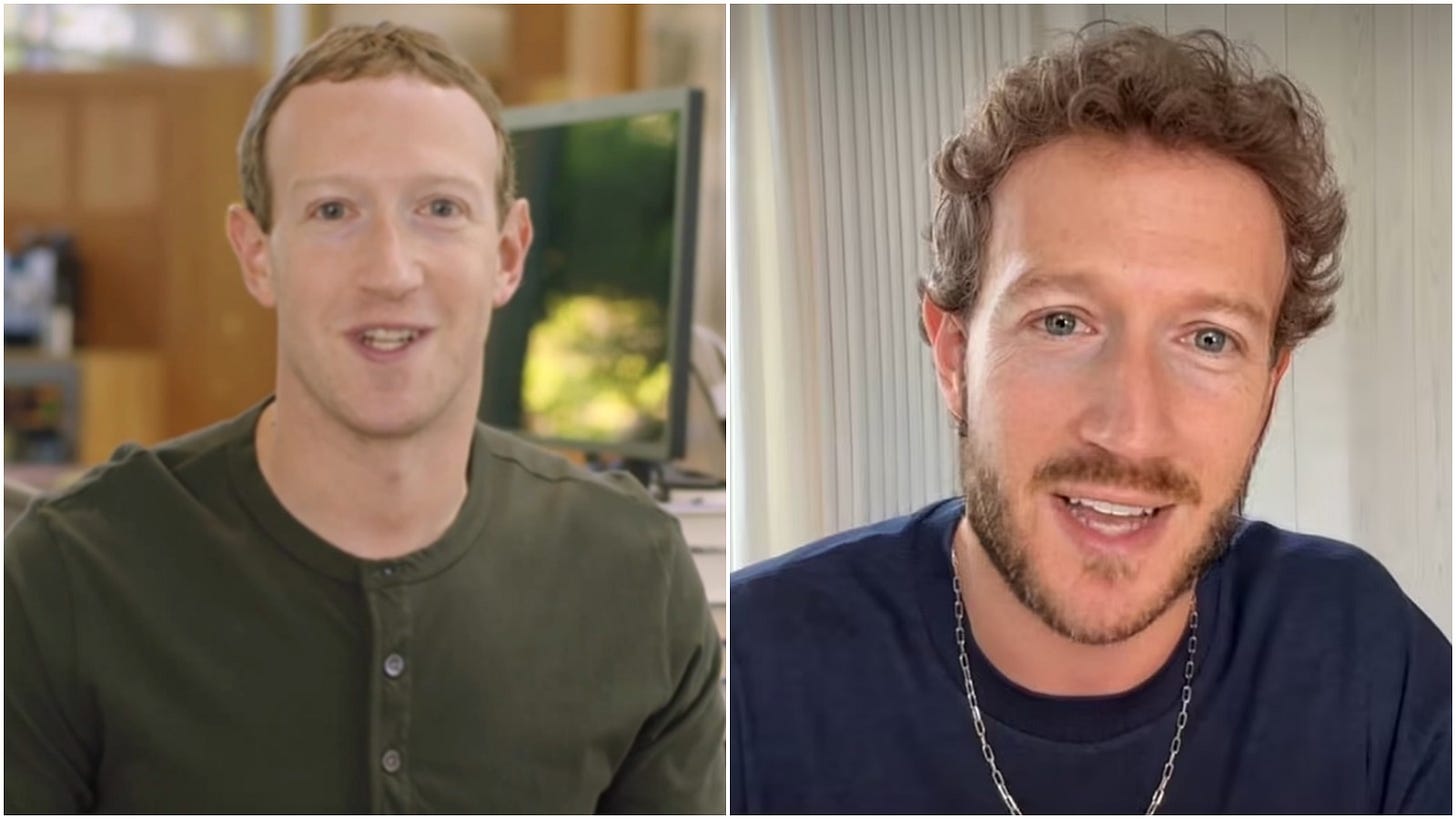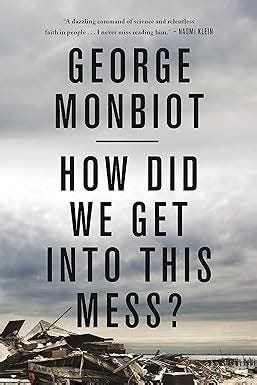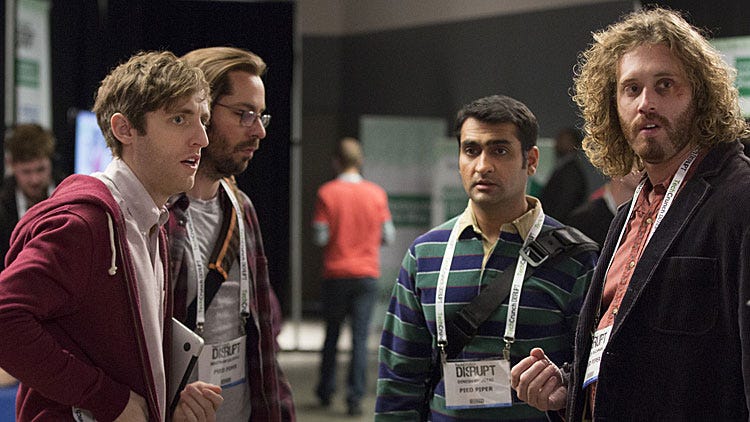I hate buying clothes and almost never wear make-up. I never, ever wear high heels. Even at fancy occasions like weddings, you will see me in a high heel for the first 30 minutes and then changed to anything flat afterwards.
I'm definitely on the comfort team when it comes to clothes. I'm glad most Europeans are on my team, so I can just be.
But an unexpected person has me thinking a bit closer about just how influential clothes and looks can be: Mark Zuckerberg.
I don’t know if you have noticed, but Mark Zuckerberg has been doing a simple PR stunt that seems to be working. He is changing his appearance, how he presents himself, and with that changing how we perceive him.
From Lizard-robot-men to Californian-boy-next-door.
After we learned that his company caused civil unrest, meddled in elections and even genocide, Facebook's CEO became one of the most hated billionaires out there. There were so many scandals, from low paid employees filtering violent and graphic content from feeds for hours and becoming seriously mentally ill, to how Facebook knew Instagram caused mental health problems in adolescents and did nothing about it.
He tried rebranding the company as Meta to make us forget about all those issues. However, he only made things worse with a terrible metaverse that no one wants to use.
Along the way someone probably told him that it's much easier and more effective to rebrand himself, and that's exactly what he has been doing. Learning jiu-jitsu, drinking a beer while surfing and opting for a more approachable appearance with longer hair and surfer's clothes.
The saddest part is that it's working.
There weren't any huge consequences for all the harm Meta had caused around the world. Besides that Congress hearing in the US and a few changes in laws around the world, nothing much has changed. At some point in 2022, the number of Facebook users started declining slowly and Meta stocks dropped too, but that lasted less than a year.
In the meanwhile, their Terms of Use for his platforms states that anything we ever post there grants them a “non-exclusive, fully paid and royalty-free, transferable, sub-licensable, worldwide license to use their content”. Meaning they can use, give away and make money from photos of you and your kids on vacation if they want to. Also, there's a clause that prohibits users from bringing a class-action, or collective lawsuit against them. The only way to fight this widespread use of our data.
In 2024 he continues to defend that all content on his social media platform can and should be used to train AI, without any copyright rights to those that created them. His social media are increasingly addicting, bad for mental health and widely accessible to anyone with a cell phone, including kids.
Also, he just attended dinner with Trump at Mar-a-Lago.
Last but not least, the colossal issue of misinformation that has caused uprising and violent acts around the world is not improving, it's getting worse, especially on Facebook. It is currently a cesspool of misinformation with AI images completely dominating feeds.
But what are the main stories about Meta and Zuckeberg lately? About how he looks.
After years of being one of the most hated billionaires out there, he is now receiving more positive comments on his personal social media than negative. Not so long ago, that seemed impossible.
It's not so weird to think this rebranding works. Steven Jobs and Apple also gained a lot from his Gandhi-like appearance with his shaved head and small, round glasses and early hippie era. Apple, through Steven Jobs has always been seen as a force for innovation and positive change, even when there's people being held at point-gun in Congo mining cobalt for the latest iPhone.

Appearance is unfortunately very influential. It transmits an image of who you are and what you stand for to the world. This can influence how people see you and for CEOs, how we perceive their companies and products.
We have to try to remember that appearance doesn't really matter when the actions of both the person and the company are so injurious to the world. Zuckeberg may be trying to get our sympathies by dressing and looking like a normal guy, but he knows exactly what he is doing. He cosplays a young normal man who needs our sympathy, while his company continues to harm most people who use it. We have our data and work stolen, we see our countries fractured, and we continue to be addicted, wasting our lives while trying to connect with friends.
Changing our appearance and dressing up can be fun. However, we have to remember that some people will do that to manipulate us. In the case of Zuckerberg, we have to squint to see the Lizard-robot-man, but he is still there.
How did we get into this mess? by George Monbiot
George Monbiot is a journalist that usually publishes his articles about environmental issues in The Guardian. This book is a compilation of many of his essays discussing the impact we leave on Earth. He also discusses how unequal societies are becoming and its consequences and the impacts of our current technologies on both society and the planet.
The Social Network (2010)
Mark Zuckeberg's relatability was first made possible by this movie. He is made out to be an uncomprehended genius. Someone awkward but still smart enough to create something that attracts the whole world to using it. Although he does some shitty things during the movie, the story mostly picks a side and it's clearly Zuckeberg's side.
Partially inspired by co-creator Mike Judge's experiences as a Silicon Valley engineer in the 1980s, this comedy series follows the misadventures of introverted computer programmer Richard and his brainy friends as they attempt to strike it rich in a high-tech gold rush. They are never quite satisfied, no matter what success they achieve, and that's quite the insatiable and toxic vibe of tech start-ups.













Great article Luiza. I don’t think the meta smart glasses are helping his looks. 🤓